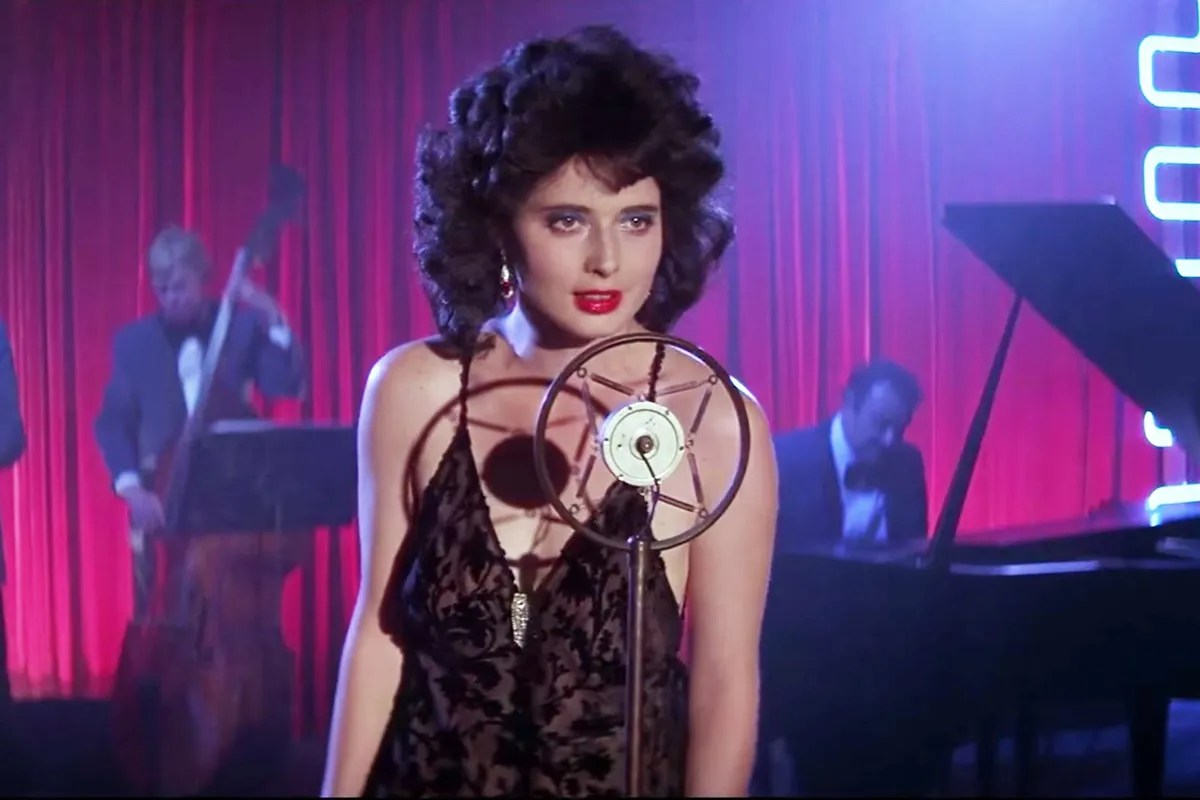Essay | Wild at Heart and Head, for the Ages
Our film critic shares some memories of the great American cinematic renegade David Lynch.

Our film critic shares some memories of the great American cinematic renegade David Lynch.

David Lynch’s singular, strange and dream-like (and occasionally mock-nightmarish) filmography is one thing. His mythic David Lynchness, as the mad conjurer of what it means to be Lynch-ian, is another. Lynch, who died this week at 78, is the Montana-bred Eagle scout who would be king of American surrealism.
The artist himself is gone: the Lynch-ian legend lives on, in the realm of cinema, fine art, transcendental meditation, pop culture and beyond. He was always in the “beyond” of his own devising, anyway. But he retained certain thumb-holds on Americana, as with his obsession with hanging and creating at the Bob’s Big Boy in Burbank.
Lynch’s remarkable cinematic work made him one of America’s greatest renegades in plain sight, who worked from both outside and within the system to pursue his unique vision. What began with the unnervingly cool indie film masterpiece Eraserhead led him into the more marketable Elephant Man — like Eraserhead, a compassionate view of a literally alienated outsider protagonist. Then came the fiasco of his being hired/coaxed into directing a broadly lambasted version of Dune.
Strangely enough, that brush with mainstream Hollywood presaged his entry into more definitive Lynch-ian expressive depths. Reportedly, Dune producer Dino de Laurentiis green-lit Lynch’s first masterpiece, Blue Velvet, as a peace offering after the Dune dung pile.

Other classic Lynch adventures followed, including Wild at Heart, Lost Highway and another widely-acknowledged masterpiece, Mulholland Drive. That powerfully articulated and powerfully weird double-take of a film gets under your skin in its own special way. Questions linger about its narrative twister play and Buñuel-ish character fusions. In the end, it’s best to leave the interpretive math fuzzy and bask in the logic defying atmosphere Lynch has so artfully cooked up.
Off in its own daffily sweeter corner of the Lynch filmography sits the aptly-named The Straight Story, a lawnmower-based road movie even your mother and children could cozy up to.
Although I’ve been a committed Lynch super-fan since Eraserhead, I personally felt at odds with 2006’s Inland Empire, Lynch’s experiment with fast cheap and out of control digital filmmaking. The film seemed to lack Lynch’s deft balancing act of semi-absurd tactics and seductive cinematic polish which marks his best work.
Although Lynch hadn’t made a film since Inland Empire, his creative fires kept slowly burning in recent years. His landmark 18-episode Twin Peaks: The Return, a late-breaking sequel to the classic Twin Peaks series from 1990-91, landed like an epic and subversive gift to the new “prestige television” realm in 2017. For the record, it was my favorite TV show in my personal history of boob tubing. As with much of his film work, the sprawling saga — and anti-saga — stitched together elements of film noir, dizzied romance/sexuality (as when the echolalic Kyle McLachlan finally hooks up with the come-hithering Laura Dern!), weirdo yarn-spinning and plenty of dream-spun absurdity in the Lynchian mix.
The series seem to both embrace the new generosity of format in the new television, while also satirizing it. There are famous episodes such as “Part 3: The Cactus Blossoms,” with David Bowie as apparitional visitor and tribute subject, the retro-Atomic age “Gotta Light?” episode and a bizarrely dialogue-lean episode in which Lynch himself plays a goofy suiter of a vampy vixen-like woman. And who can forget the episode capping visits to the Bang Bang Club, with haunting music interludes to suit the episode before us.
Even more recently, on his YouTube channel, David Lynch Theater, the restlessly inventive and dry-witted Lynch appeared in sorta matter-of-fact daily weather updates and offered handy hints in life and philosophy on his internet theater portal. He often signed off: “I wish for everyone blue skies and golden sunshine, all along the way. Everyone: have a great day,” with an odd vertical salute for emphasis. And then there is this, reputedly his “final film” from mid-2024, a fatalistically funny revoicing of a film noir title, here teasingly called “Will There be Anything Else?” (link). The final lines: “life is but a dream. The End.” Music swells.
On a personal note, I believe Lynch had a big influence on my work as a songwriter and musician, in terms of bringing twin piques (sorry) of interest in existing genres, with a will to muck around and fold in ironic twists in the process.
Sadly, we won’t be getting any further artistic content or weather updates from the mortal David Lynch, but the spirit of Lynchiana is embedded in the world’s cultural DNA. Thanks for the lingering and dreamy memories, David.
Editor’s Note: Our ever busy Santa Barbara International Film Festival team just confirmed that they have booked a David Lynch retrospective at the new SBIFF Film Center February 16-27 (immediately following the conclusion of the 40th Annual Santa Barbara International Film Festival). Stay tuned for a complete list of films and the schedule.
Please note this login is to submit events or press releases. Use this page here to login for your Independent subscription
Not a member? Sign up here.
You must be logged in to post a comment.